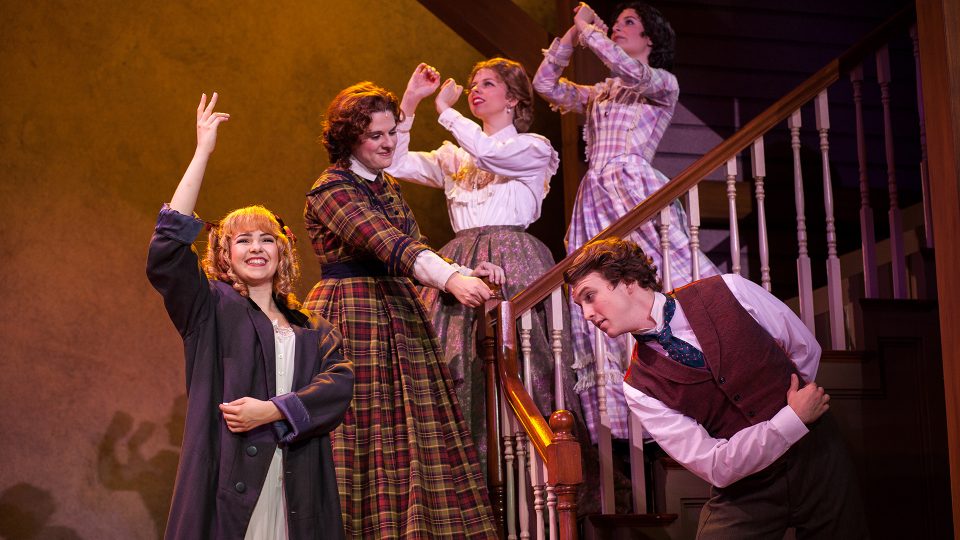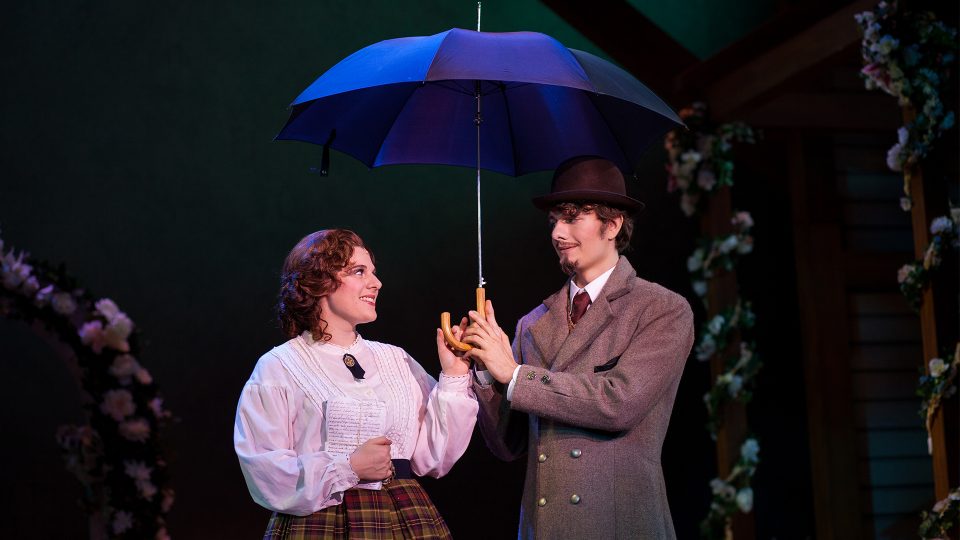In both the original text and in the adaptations that followed, Louisa May Alcott’s Little Women speaks across generations of discovery, heartache and love. Zoë Crabtree, dramaturg, goes deeper into the historical context of this work and the place of feminism in the 1800s.
Little Women occurs in Concord, Massachusetts between 1863 and 1866, the later half of the U.S. Civil War. The war divided the country both geographically ideologically into the Northern Union and the Southern Confederacy.

Somewhat sheltered from the war by their northern location, the March family is nonetheless affected by supply shortage and their father’s absence. Volunteering at the Concord Soldier’s Aid Society and emphasizing the importance of family and religion, Marmee March steers the family’s moral center. Each of the March sisters copes with the tumultuousness of the war and the absence of their father in a different way: Meg strives to be a lady, Beth takes care of the family, Amy aspires to be an artist and Jo writes fiction.

While she would not have had the language at the time, this production considers Jo to be a feminist. Despite women’s increased assistance with the war effort, it continued to be out of the ordinary, even daring, for a woman to focus on her career over her marriage prospects. As a consistently published author and her family’s primary source of income while their father was away at war, Jo is ahead of her time. Nevertheless, she struggles with the decision between continuing to follow her own authorial ambitions in New York City and remaining in Concord with those she loves. Like women in the 21st century, Jo struggles to find her place in her family and in the world at large.
– Zoë Crabtree, Dramaturg
Little Women
The Broadway Musical
Book by Allan Knee
Music by Jason Howland
Lyrics by Mindi Dickstein
Based on the novel by Louisa May Alcott
Directed by Melissa Maxwell
November 2-20, 2016
B. Iden Payne Theatre
TICKETS NOW AVAILABLE
Photography by Lawrence Peart

